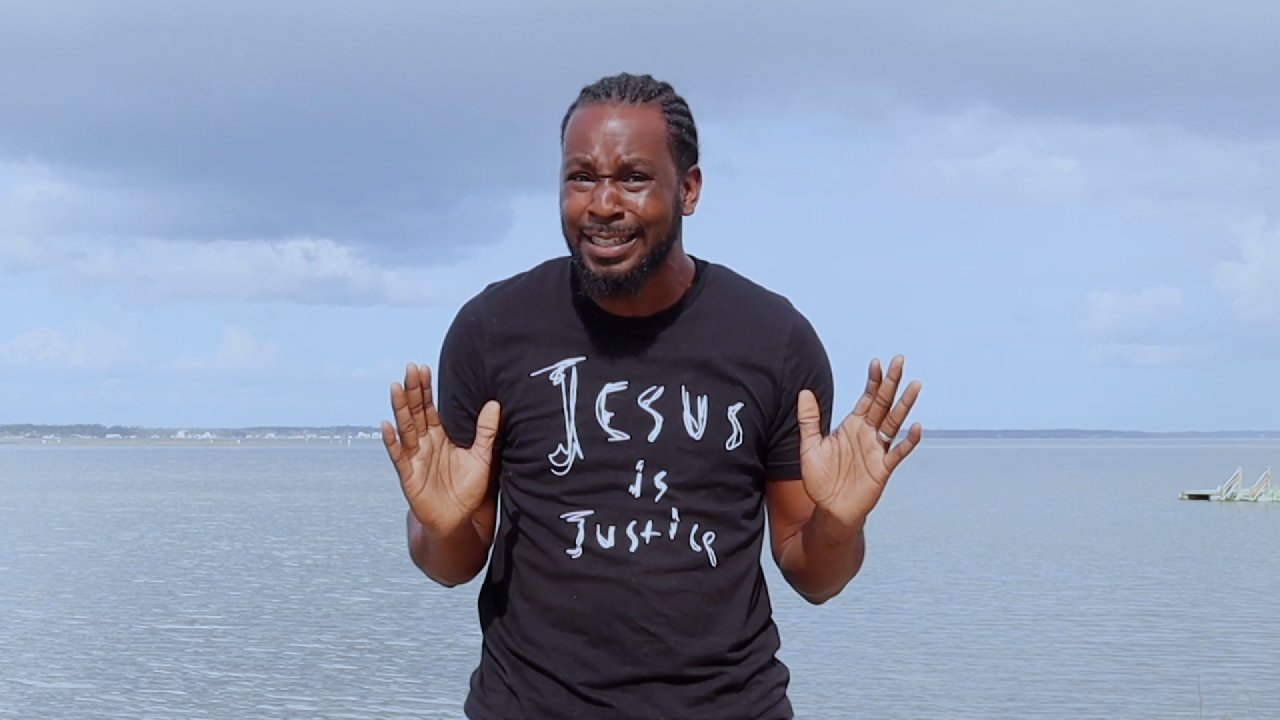Baptism! You’re probably at a place in your walk with Christ that you’re seriously considering water baptism. In this devotional, we will be looking into what Jesus showed and said about baptism, what the purpose of baptism is, and how you can be baptized.
First, we need to establish that baptism is not a requirement for salvation (see Ephesians 2:8-9). Nor is it a prerequisite for Heaven as shown by the criminal on the cross next to Jesus being admitted into Heaven having never been baptized (Luke 23:39-43).
The best place to start this conversation is by looking at Jesus's example and words surrounding baptism. In Mark 1:9, Jesus sets the example of water baptism for His followers by allowing John the Baptist to baptize Him. This baptism was a full immersion underwater. Even though there are various ways that people teach on how baptism occurs, the Biblical example left by Jesus and then all those who proclaimed it after His death and resurrection, was through full immersion in water. Directly after His resurrection, he makes baptism a command in his final words to His disciples before He ascended into heaven in Matthew 28:19-20. Meaning that this isn’t just a custom or tradition for Christians to practice, but rather, a direct command from Jesus Himself.
So what is the purpose of baptism anyway? Well, the Bible makes it clear that this is a public demonstration of any internal reality. Romans 6:1-5 and Colossians 2:12 speaks about the deep symbolism of baptism. Where we are demonstrating our death to our old life and resurrection to new life in Christ. This was and still is a huge celebratory event for anyone becoming part of the family of Christ (1 Corinthians 12:12-13).
So what are you waiting for?! After you’ve accepted Jesus as your Lord and Savior, your next step is finding a community of believers who are willing to lead you into a moment of baptism! As the Ethiopian Eunuch expressed to Philip in Acts 8:36, “Look, here is water. Why shouldn't I be baptized?”

Day 5 - Baptism
J.T. Thomas • Romans 6:1–5, Acts 8:35–39, Ephesians 2:8–9
Day 1 - The Gospel
Dominic Russo • John 3:16–17
Imagine this with me: You go to your favorite restaurant to buy $100 worth of delicious food, and when you get there, a man with unlimited money asks to pay for all of your food. When he asks this, you decline because you think that you have enough money to pay for all of the food that you ordered. As time goes by, you realize that you actually don't have enough money to pay for the food. After you realize this, the man offers to pay for the food again, and this time you accept the money, and the debt of $100 is paid. The food in this scenario represents sin. Anytime we break one of God’s divine laws (which we do a lot) would be considered sin. Since God is perfectly just, we have a price to pay for our sins. The price of the food ($100) represents the price we would have to pay for our sin, which is spending eternity away from God in a place full of suffering called Hell. The man in this story represents God, and the money he has represents the sacrifice of Jesus Christ. God sent himself to Earth in the flesh, as Jesus, to die for the sins of the world by being crucified on a cross. The thing is, the money doesn't pay for the food unless you actually accept it from the kind man. Similarly, the sacrifice of Jesus doesn't actually pay for one’s sins until he accepts the sacrifice by putting faith in Jesus Christ. The issue is, many people in the world truly believe in Heaven and Hell, but they think the amount of "good" things they do will determine whether or not they will go to Heaven. In reality, the only way to go to Heaven is by the grace of God through our faith in Jesus Christ. As followers of Christ, we have an obligation to tell the world about this good news. None of us are able to pay for our sin, but we have a voice to tell everyone about a man who is more than able to pay for it all.
Day 2 - The Bible
Marcela Barcelona • Psalm 119:9–24, Psalm 119:97–105
The Bible is one of the most important attributes of our faith. It is the bedrock of everything we believe and trust in. Without it, we have nothing to base our life and experience on. We can say that with such certainty because the Bible itself says in John 1 that Jesus Himself is the Word! He is the Word that became flesh. All throughout the pages of scripture, Jesus is making Himself known, everything within the Bible is written to reveal and point us towards Jesus Christ and His good news! Psalm 119 is David’s psalm of love for the Word of God. You’ll notice every verse mentions SOMETHING about the scripture—A “testimony,” A “precept,” a “commandment,” a “law,” “Your Word.” These are all different ways David talks with such passionate love for the Holy Scriptures! It almost feels more like a love song than a psalm about the Bible. Rightfully so, because David had a revelation that “those who love Your law have great peace, and nothing causes them to stumble.” (Psalm 119:165) This is how important it was to David. He talks about rising early, staying up late, and meditating on the Scriptures as much as physically possible. This is right in line with what Jesus Himself teaches when He says, “if you abide in me, and My words abide in you, ask whatever you wish, and it will be done for you!” (John 15:7)Wow, this seems important to keep reading the Bible! No wonder there is such opposition and distraction keeping us from spending time in the Word. The devil knows the fruit it will produce! Spend time meditating on Psalm 119 today and let God fill you with fresh passion and hunger for His Word!
Day 3 - The Trinity
Francis Chan • John 1:1–5, John 1:14
In this short devotional, we will attempt to understand the mystery of The Trinity of God! First, we have to remember that scholars have spent their lives aiming to grasp the knowledge of who God is, yet we have only scratched the surface of understanding! So here are some basics. God is just ONE being with THREE individual persons. All three persons have existed together from the beginning and share one identity, yet have three individual roles! John 1 says God has existed from the beginning with “the Word” who is Jesus, and “the Word” was with God. In the Old Testament, the way God is most commonly known is “Father.” In the New Testament, we see this Father sends his Son, the second part of the Trinity, who is Jesus Christ. John 3:16 says, “For God so loved the world that He sent his only Son.” Jesus himself is also all-powerful and is fully God and fully man. John 5:19 says, “Very truly I tell you, the Son can do nothing by himself; he can do only what he sees his Father doing, because whatever the Father does the Son also does.” Jesus perfectly reflects the Father. The third part of the Trinity is the Holy Spirit. The Holy Spirit is the spirit of God and a distinct person of the Trinity! As Jesus dies and is resurrected, he sends the Holy Spirit to come fill the believers in his place, because it is better for Him to go be with the Father! The Holy Spirit is the Spirit of God and makes a home inside Christians! 2 Corinthians 3:17 begins like this: “Now THE LORD IS THE SPIRIT . . .” and Jesus also says, “. . . the Holy Spirit, whom the Father will send in my name, he will teach you all things.” Through the gift of the Holy Spirit, God literally lives inside of believers and guides their lives! Deuteronomy 6:4 says, “Hear, O Israel: The LORD our God, the LORD is one.” God is three persons within ONE God. They interact in perfect unity and do only what the other does. As believers we aim to grasp the mysteries of God through study and prayer! As you study, ask God to reveal himself to you, and remain in awe of the fact that the all-powerful God of the universe wants to have a personal relationship with YOU!







